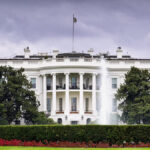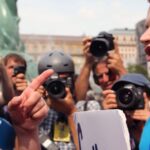
Published December 15, 2020
In November 2020, the Annals of Internal Medicine, an influential scientific journal, published a study called DANMASK-19 (Danish Study to Assess Face Masks for the Protection Against Covid-19 Infection). The investigators randomized patients in Denmark to wearing masks or not wearing masks during the Covid-19 pandemic. Ultimately, 1.8 percent of the masked group developed SARS-Cov-2, while 2.1 percent in the control, or non-masked group, contracted the virus. The difference was not statistically significant. Thus, mask wearing did not result in a significantly different infection rate for the mask-wearers.
But caution is needed in interpreting the study’s implications. Though the study was well designed and executed, it did not test whether masks played a role in controlling the transmission of Covid-19 to others, an important reason for wearing masks. Furthermore, the trial took place in the spring, at a time when most people were not wearing masks in the community; this leaves open the significant possibility that masks are effective only with widespread use. Additionally, the study did not enroll a large number of patients, and 7 percent of patients in the intervention group did not wear the masks as recommended. In short, the study does not disprove the utility of widespread mask-wearing in reducing transmission of the virus. But it suggests more than just mask-wearing may be important for reducing an individual’s risk, such as frequent hand washing and social distancing.
The study, despite its robust methodology, was not published for months after its completion. Indeed, it was rejected by three prestigious journals prior to its publication. This may very well be due to the fact that the peer-review process is both lengthy and highly selective, but Dr. Christine Laine, the editor-in-chief of Annals, indicated there may have been other reasons to reject this particular article. When asked about fears of publishing the study, she said, “Afraid is probably not the right word. . . . we were concerned about the risk that people who did not carefully consider the question that this trial was able to answer would misinterpret it, either because they didn’t understand the study or purposefully to support their own beliefs about the effectiveness of masks.” Would it provide fodder to conservative groups opposed to masking? Would it erode public trust in masking? Could the authors and editors trust the public to understand and interpret the study appropriately?
To her credit, Dr. Laine made the right call to publish a well-executed study and courageously resisted these concerns. As she and her colleagues wrote in an editorial accompanying the article: “More irresponsible would be to not publish the results of carefully designed research because the findings were not as favorable or definitive as some may have hoped.”
Such temptations to withhold information from the public have, alas, become common during the Covid-19 pandemic. And often our political and intellectual leaders gave way to those temptations. President Trump withheld information about the severity of Covid-19 from the public for fear of causing panic. He told Bob Woodward: “It’s also more deadly than even your strenuous flus,” and “I wanted to always play it down, I still like playing it down, because I don’t want to create a panic.” Our government could not trust its people to respond appropriately to the truth about the virus—we needed protection from such information.
Dr. Anthony Fauci, the director of the National Institute of Allergy and Infectious Diseases, used similar logic. In an interview with 60 Minutes on March 8, Fauci said:
There’s no reason to be walking around with a mask. When you’re in the middle of an outbreak, wearing a mask might make people feel a little bit better and it might even block a droplet, but it’s not providing the perfect protection that people think that it is. And, often, there are unintended consequences—people keep fiddling with the mask and they keep touching their face.
Fauci later revised his stance, suggesting he had minimized the importance of masks because PPE was in short supply and health care workers needed access to such scarce equipment. One might make the argument that the science surrounding mask wearing had changed between Fauci’s initial recommendation and his recantation. But the evidence, in truth, had not changed dramatically. As Fauci himself explained, public health experts “were concerned the public health community, and many people were saying this, were concerned that it was at a time when personal protective equipment, including the N95 masks and the surgical masks, were in very short supply.” He added, “We wanted to make sure that the . . . health care workers, who were brave enough to put themselves in a harm way [were taken care of].” If the evidence had changed that wasn’t the post hoc explanation. Dr. Fauci omitted important details in March because the public might selfishly use masks needed for physicians and nurses. He could not trust us to abide such a nuanced message.
That same month, Dr. Mitchell Katz, then the head of the New York City public hospital system, and Mayor Bill De Blasio of NYC made identical calculations. Dr. Katz wrote Mayor De Blasio on March 10, stating that banning large events would not just damage the economy but lead to overreactions, fear, and hysterics. Dr. Katz resisted instituting public health measures in order to protect the public from fear. It was as if New Yorkers could not be trusted to respond reasonably to complete and open information.
Inevitably, in any kind of crisis our intellectual and political leaders make mistakes, especially during a pandemic involving a novel infectious disease in which our leaders and professionals are learning on the fly, just a few steps ahead of the general public. Evidence accumulates daily that may require an abrupt shift in policy. While we ought to criticize their missteps, we should also recognize that no human being acts and reacts perfectly. But there is a difference between making mistakes because we are uncertain about what’s happening and strongly suspecting what the reality is but hiding that reality from the citizenry. The examples and temptations above indicate the latter and ought to disturb us: with great consistency, our leaders do not trust us with the truth.
This distrust runs both ways. Pew polls demonstrate a shockingly low level of faith in our government—only 17 percent of Americans today say they trust the government in Washington to do what is right. Public trust in our representatives was not always thus. In 1958, around 75 percent of Americans trusted the federal government to do the right thing almost always or most of the time. The reticence of our political elite to share information with us is not necessarily the cause of such a downward trend, but it both exacerbates it and points to a certain disconnect between our fellow citizens and those we trust to craft policy. One exception stands out: according to the Pew polls, trust in medical science and scientists has grown since the pandemic began. However, a closer look at the data tells a more troubling story. Burgeoning differences along partisan lines exist: among Democrats, 53 percent have a great deal of confidence in medical scientists to act in the public interest, while 37 percent responded in this way in January 2019. Among Republicans, only 31 percent express a great deal of confidence in medical scientists; 32 percent responded in this way in January 2019.
It’s not totally clear why this divide exists. The increase in trust among Democrats might be due to Trump’s perceived insouciance about science. Indeed, both Republicans and Democrats view Covid-19 as a partisan wedge issue, in particular the question over whether lockdowns and masks are absolutely necessary. Hiding the truth from the electorate will further aggravate this divide, as each side points to its opponents’ mendacity. Trust, after all, is particularly delicate when built along partisan lines.
This is not to say that citizens must be involved in every decision the government makes. We elect our leaders to judge wisely on our behalf. Interestingly, many Americans feel this way: 55 percent of Americans state that public opinion should not play an important role in guiding science related policy because of the complexity of such decisions. Nor should we abandon all of our decision-making power to a Platonic philosopher-king. Elected officials are both free of us and beholden to us. In a complex democratic republic like ours politicians act as surrogates for public opinion but do not always abide by public opinion. And, in some sense, what our leaders do and do not reveal to us about the intricacies of public policy works in a similarly nuanced way. We don’t need to know the codes to our nuclear arsenal or where the CIA keeps its safehouses, but we ought to know whether an infectious virus will tear through our country or not. We ought to know whether we should wear masks en masse or not and the justification for such policy decisions. And if there’s understandable uncertainty about certain aspects of the science our policy is based on, we should know that as well.
Unfortunately, as the instances above indicate, our approach to Covid-19 at times seemed just the opposite: hide as much information as possible and hope for the best. Our politicians and scientific leaders hesitated to share fundamental knowledge about what we would face and what we should do, infantilizing us, shielding us from the truth. Such hesitations even plague our high-profile scientific journals today, giving us further pause as we peruse their pages, wondering what might have been rejected out of a misplaced sense of paternalism or political calculation.
At a time when trust in our leaders wanes, strangleholds on validated, well-documented information should loosen not tighten. There will always be those who overreact, misinterpret, and sow misinformation. As Dr. Laine, who provides an important counter-example, argued in her editorial, we should not fight propaganda with lies of omission; this only further obfuscates the truth and dissolves trust in our leadership. No, we deserve the most accurate depiction of scientific reality possible, even if it is not as favorable or definitive as we would hope. If our policy leaders and scientists cannot put their faith in us with all our faults and shortcomings, why ought we put our faith in them with all their faults and shortcomings? Such a retributive society no longer functions as a democratic republic but as a tenebrous, tendentious, and tenuous social contract.










